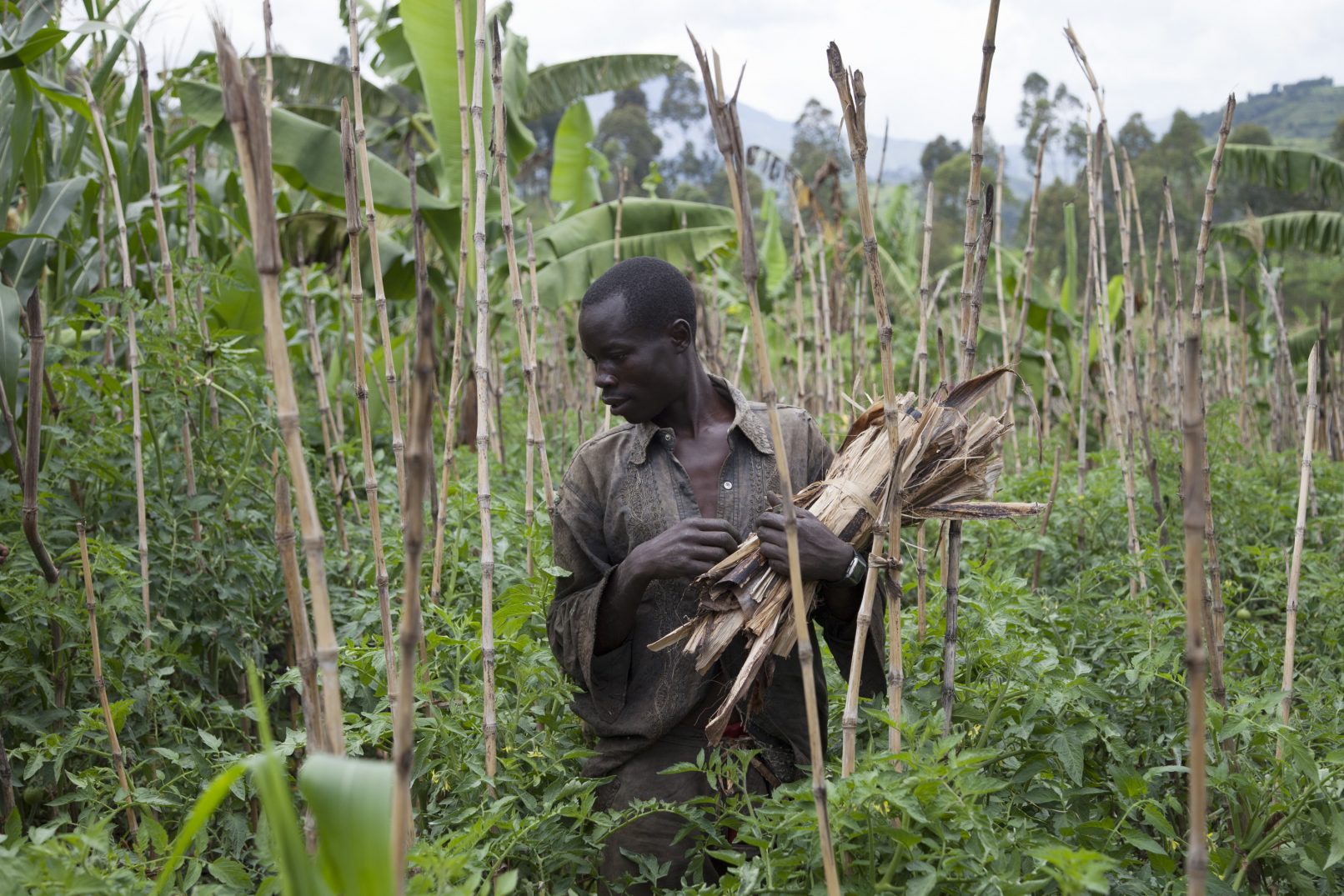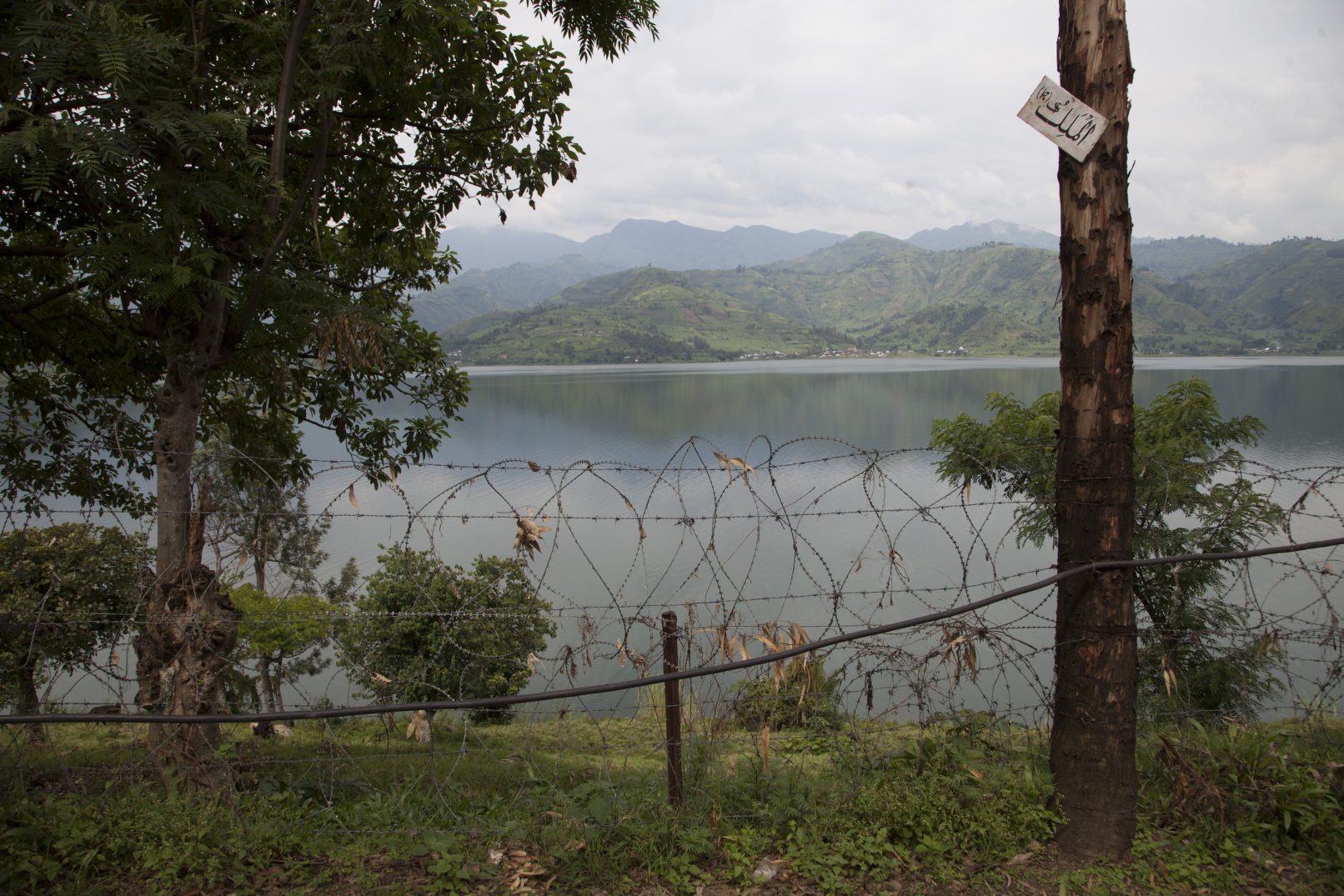Leave us in Peace
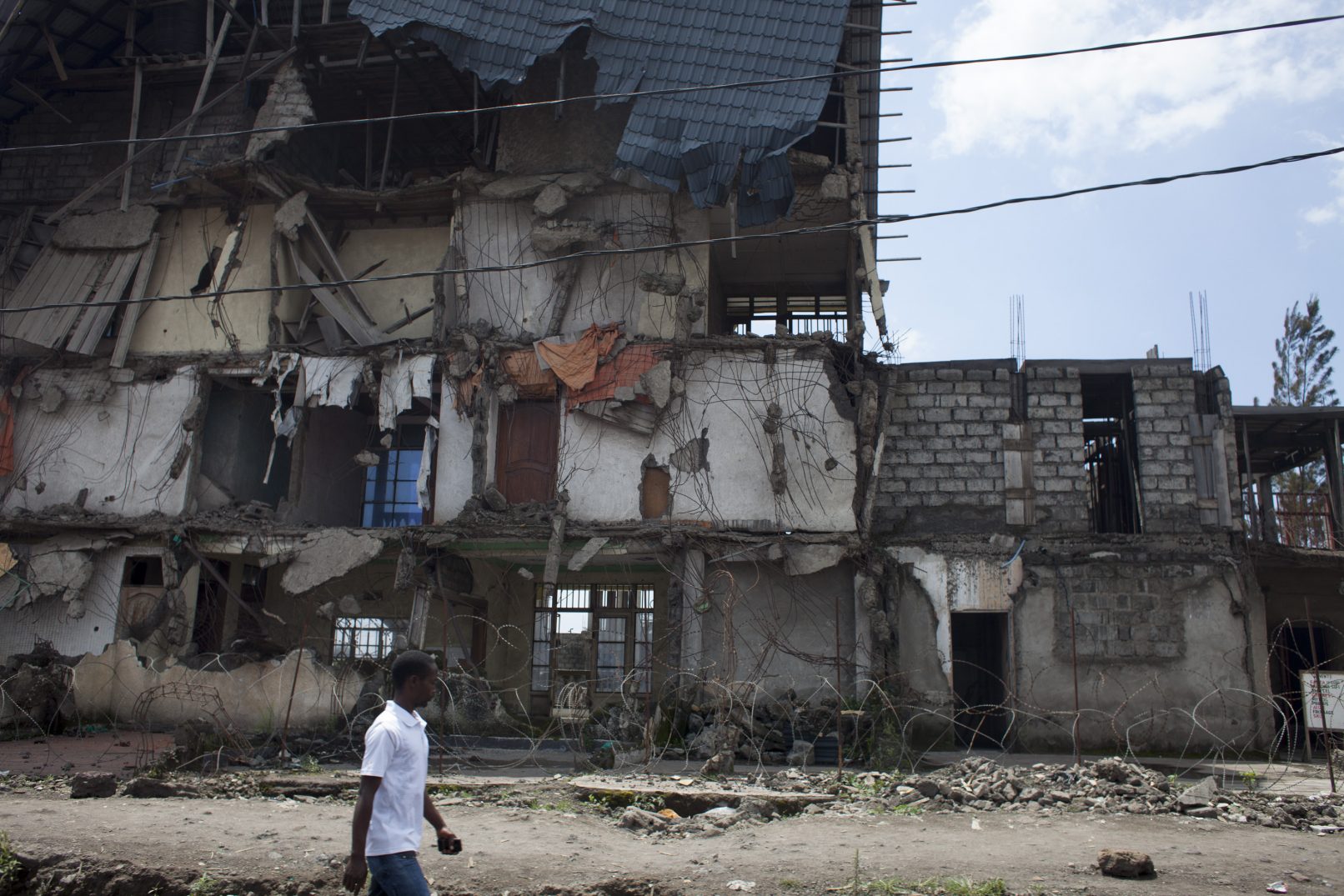
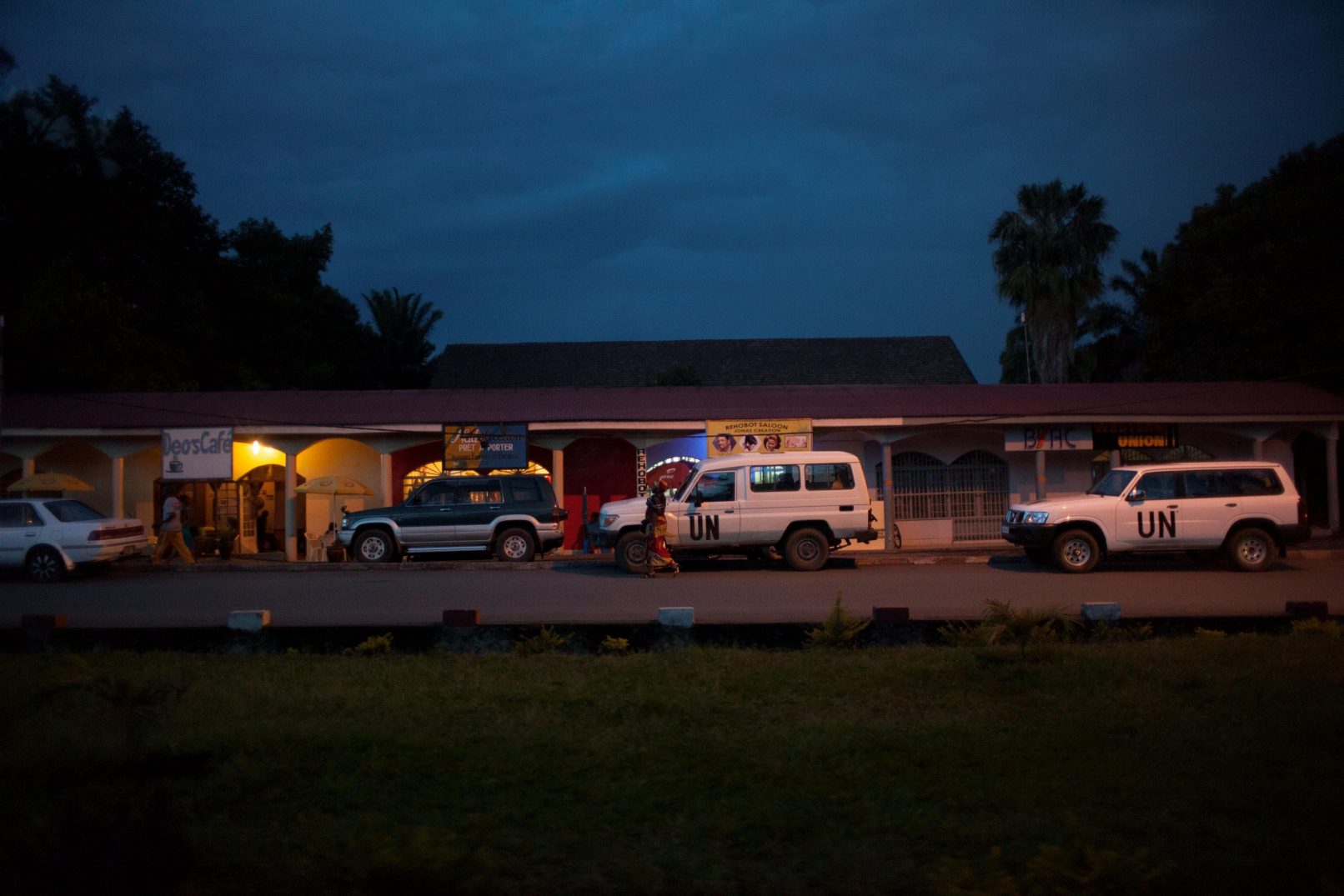
NGO and UN vehicles in Goma, eastern DRC

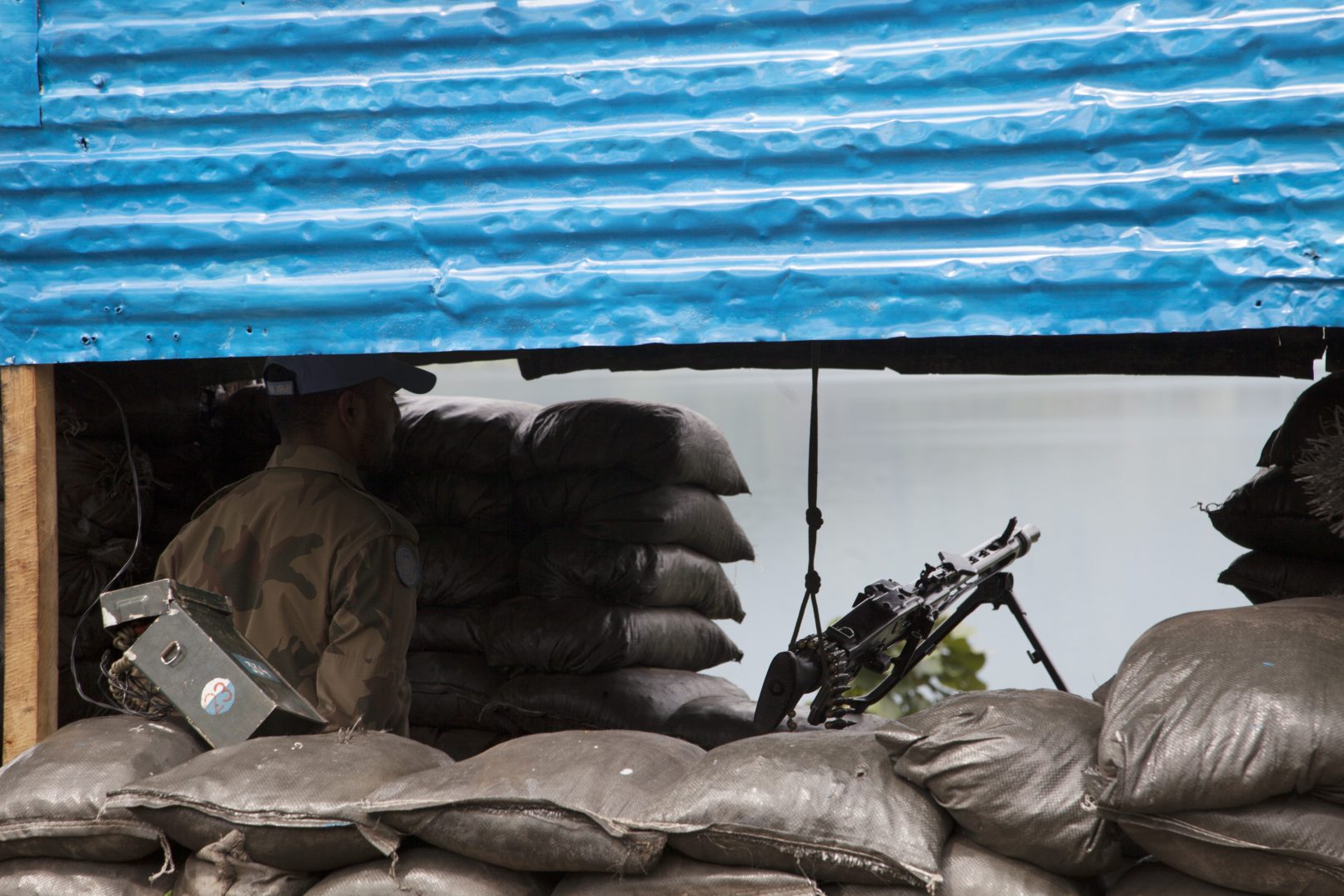
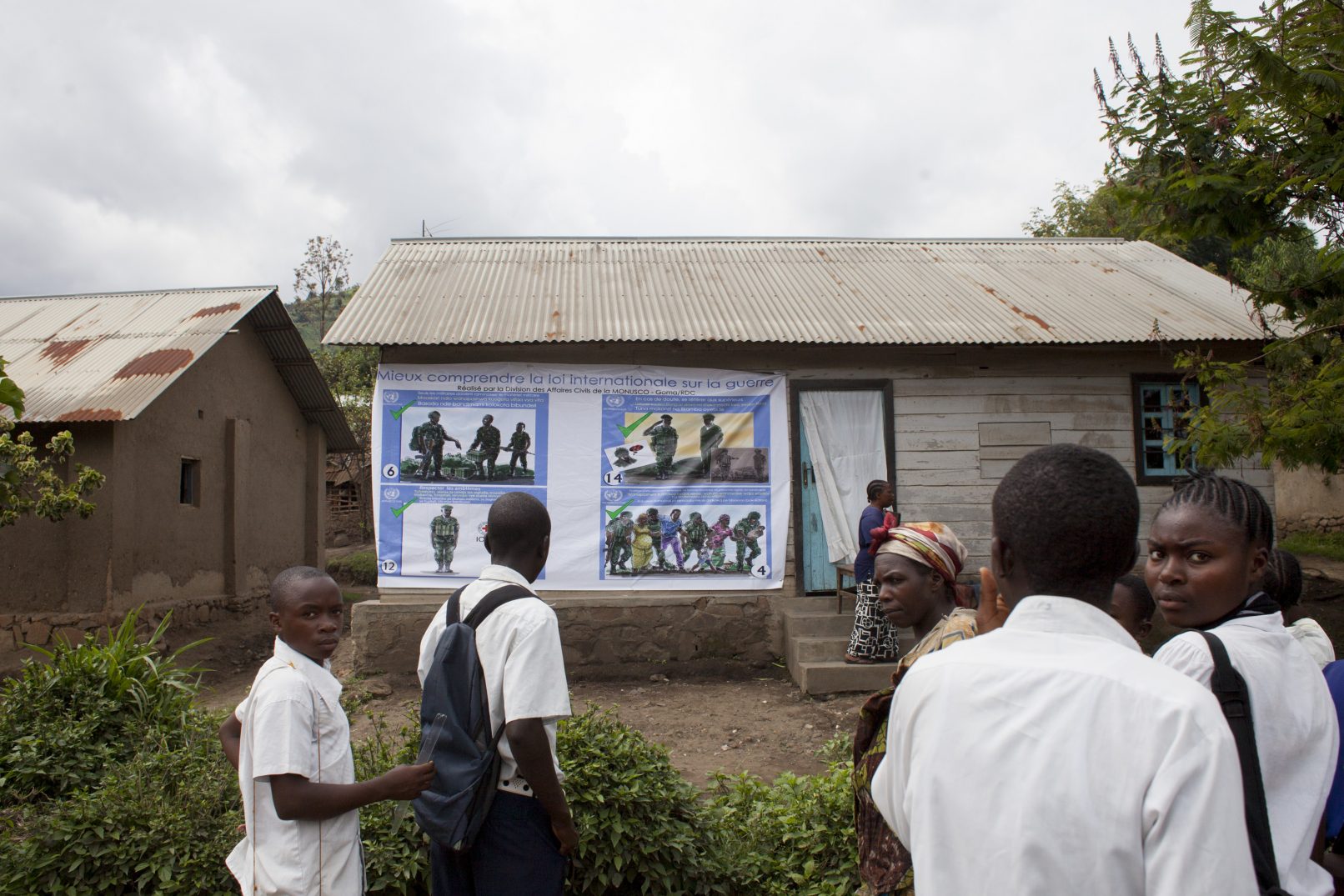
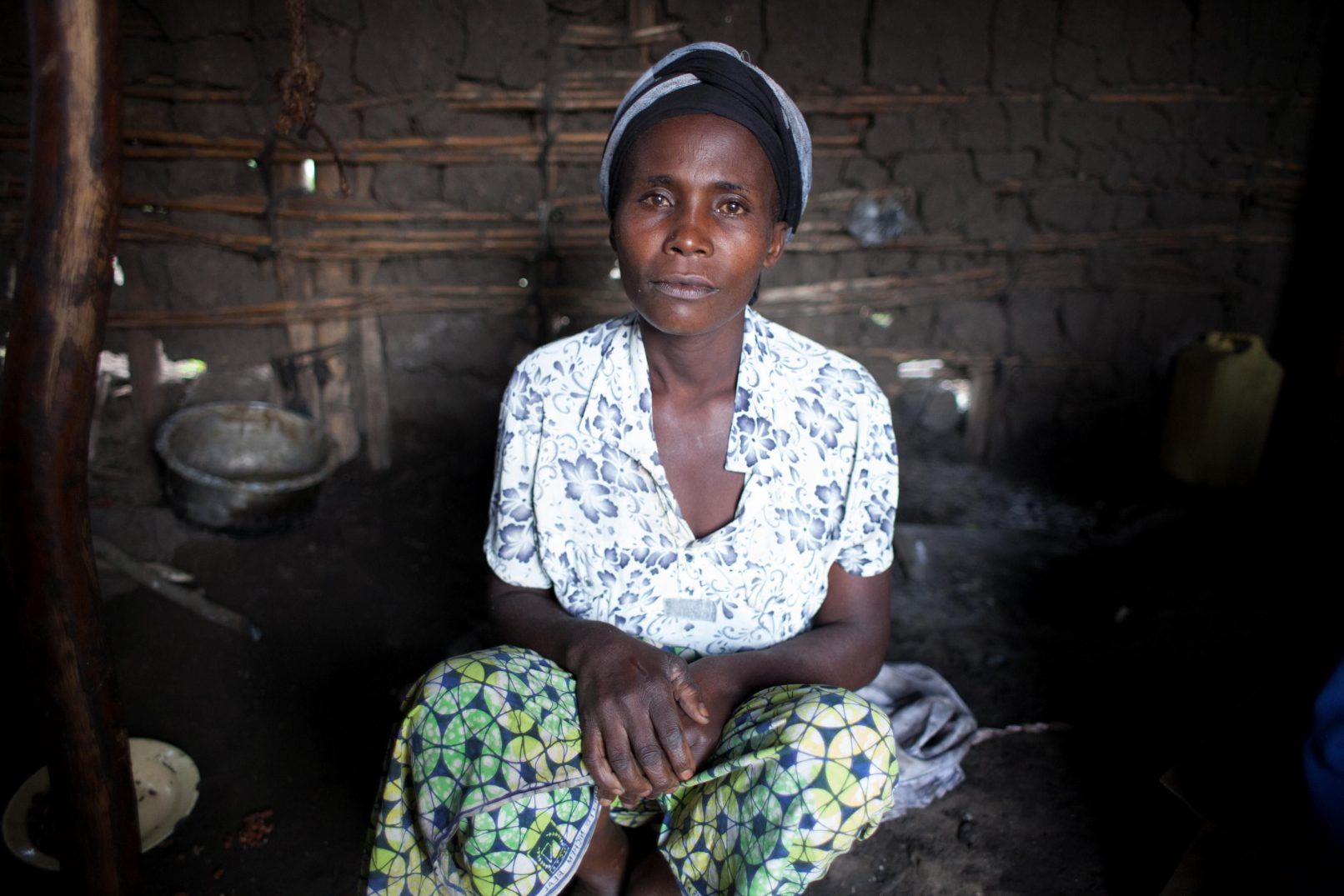
Bweremana, north Kivu - Esperenze Ndabuye, 30, has 9 children and lives alone with 8 of them in a small wattle and daub hut. Esperanze and her oldest daughter were raped after being shot to prevent them escaping when soldiers broke into their home. The soldiers also took everything from their house. Esperanze was pregnant with her 9th child at the time. Her husband was away. Rape survivors often suffer huge stigma and discrimination after the event and many women's husbands desert them. When Esperanze's husband found out that she had been raped, he left her to raise their children. Esperanze's daughter also decided to leave the hard life she and her mother faced and has now married a soldier from the Congolese army. She is left disabled and unable to provide food or schooling for her children.
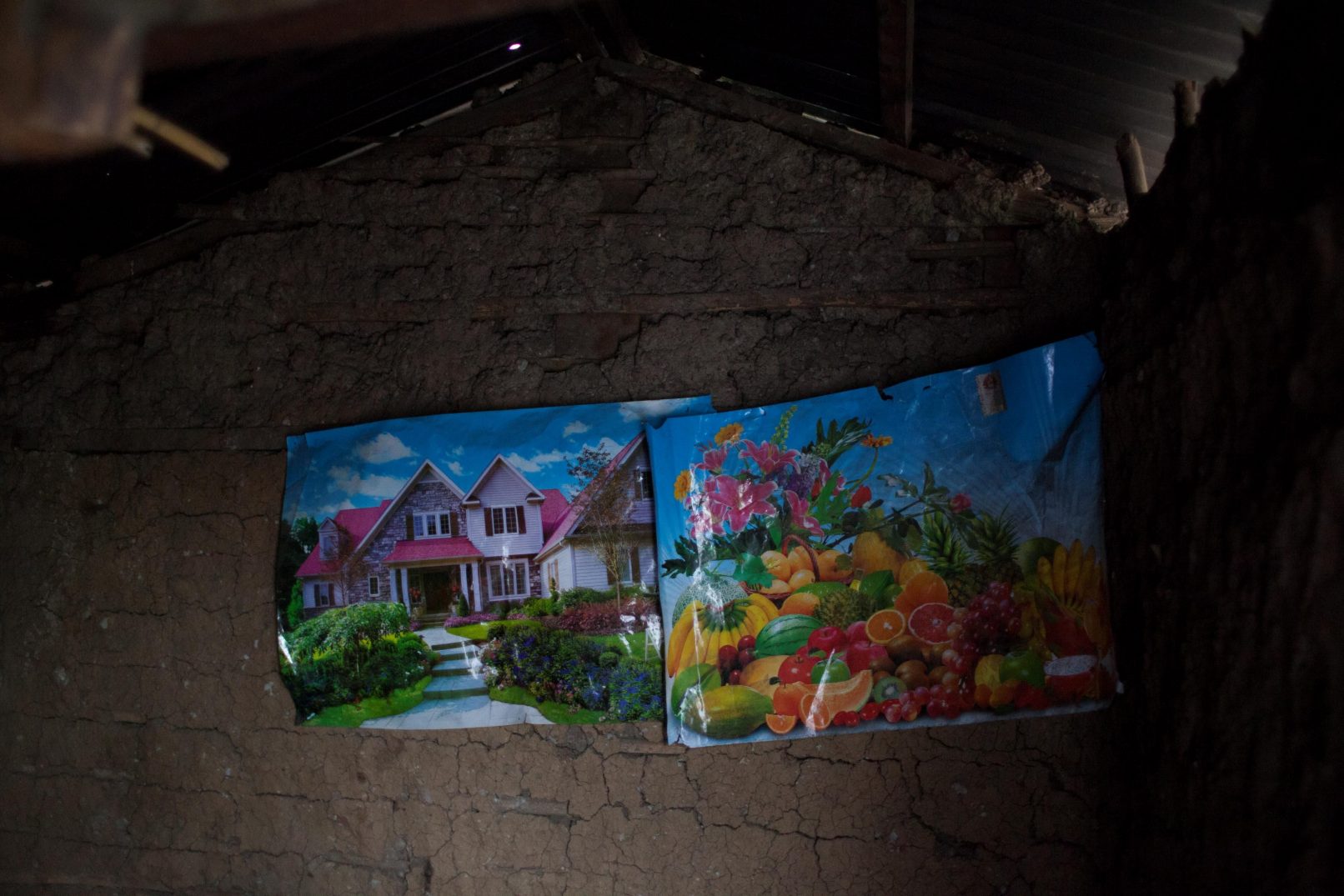
Bweremana - A picture pinned up inside Safari Kahindu's home
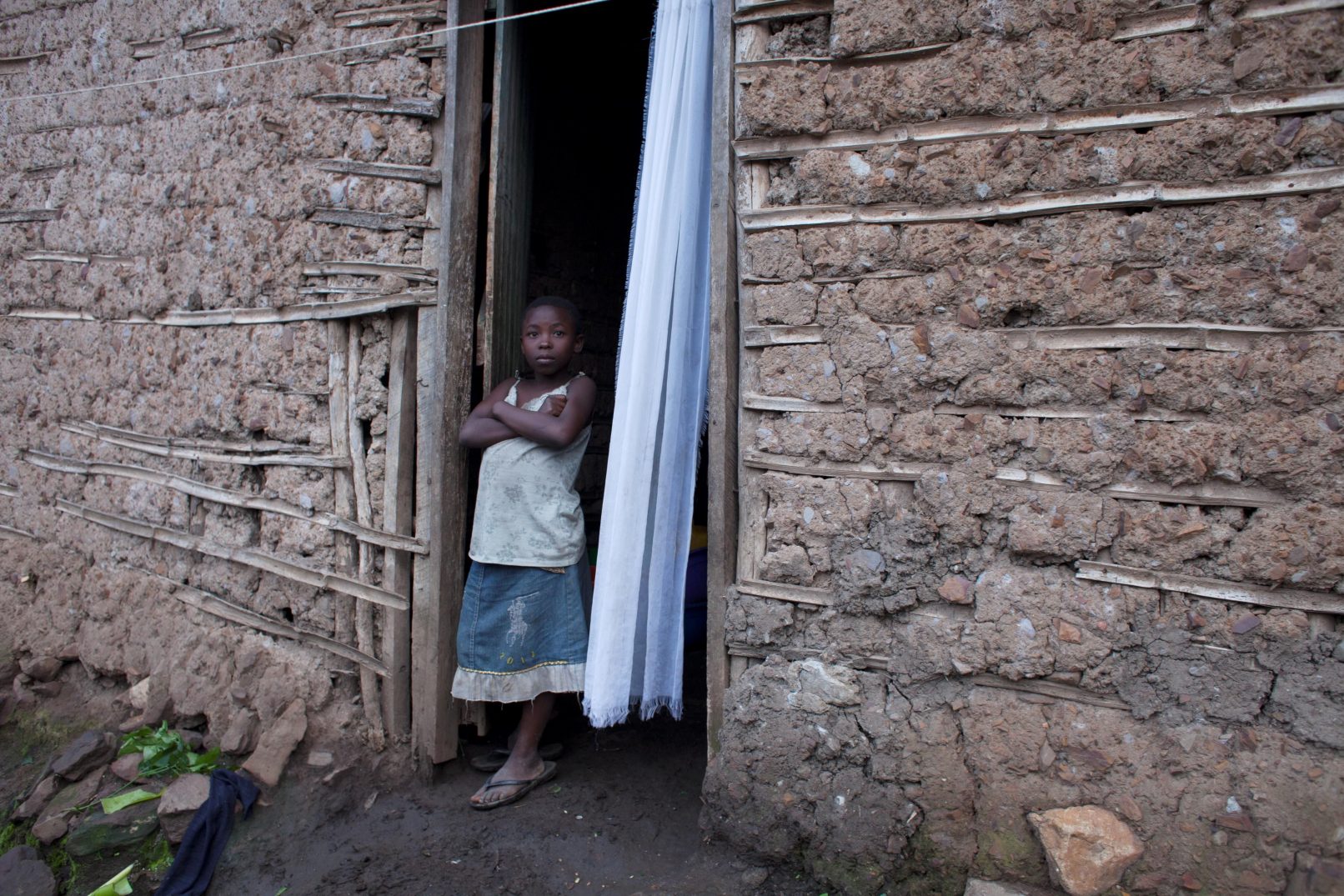
Bweremana - One of Safari Kahindu's children outside their home.
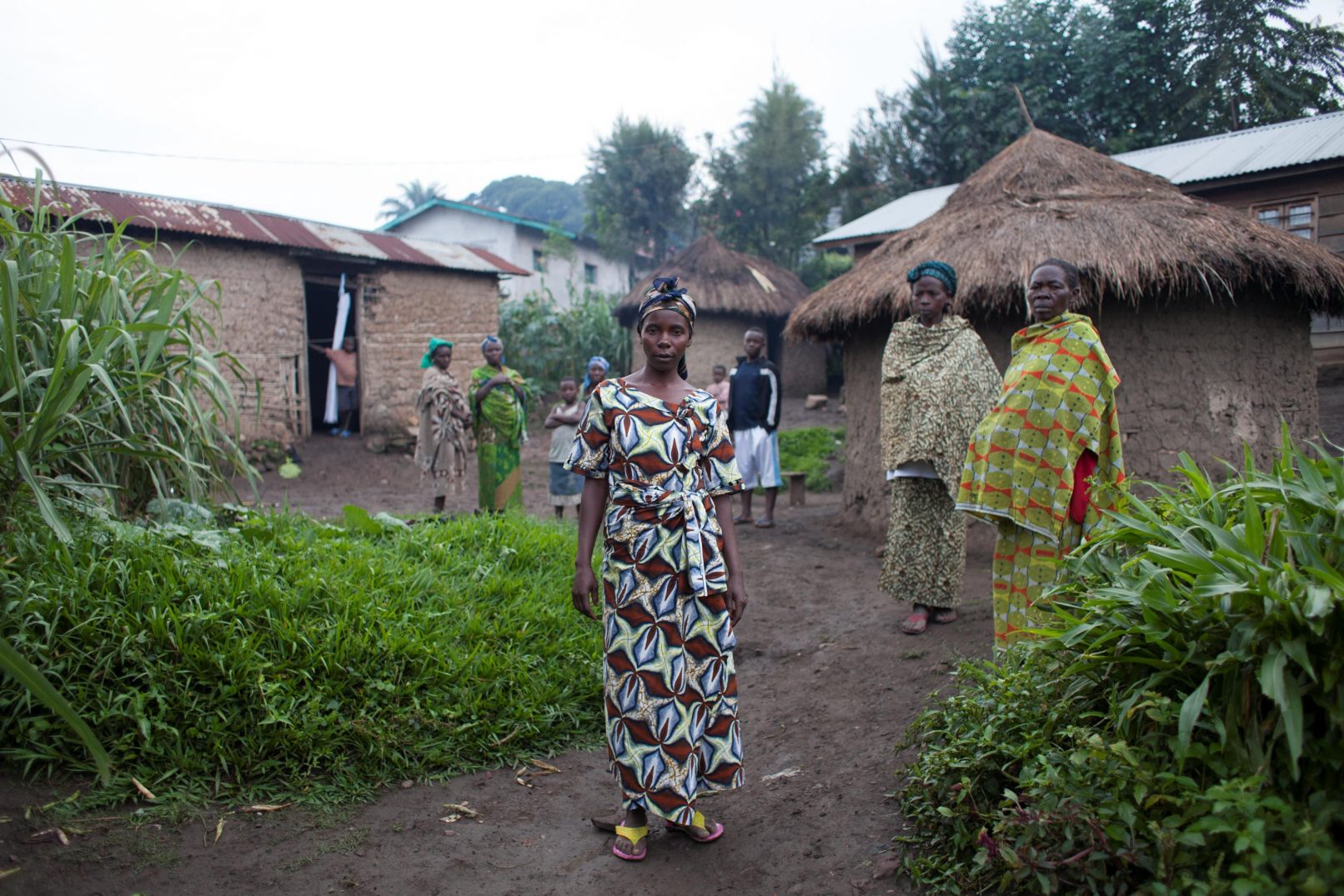
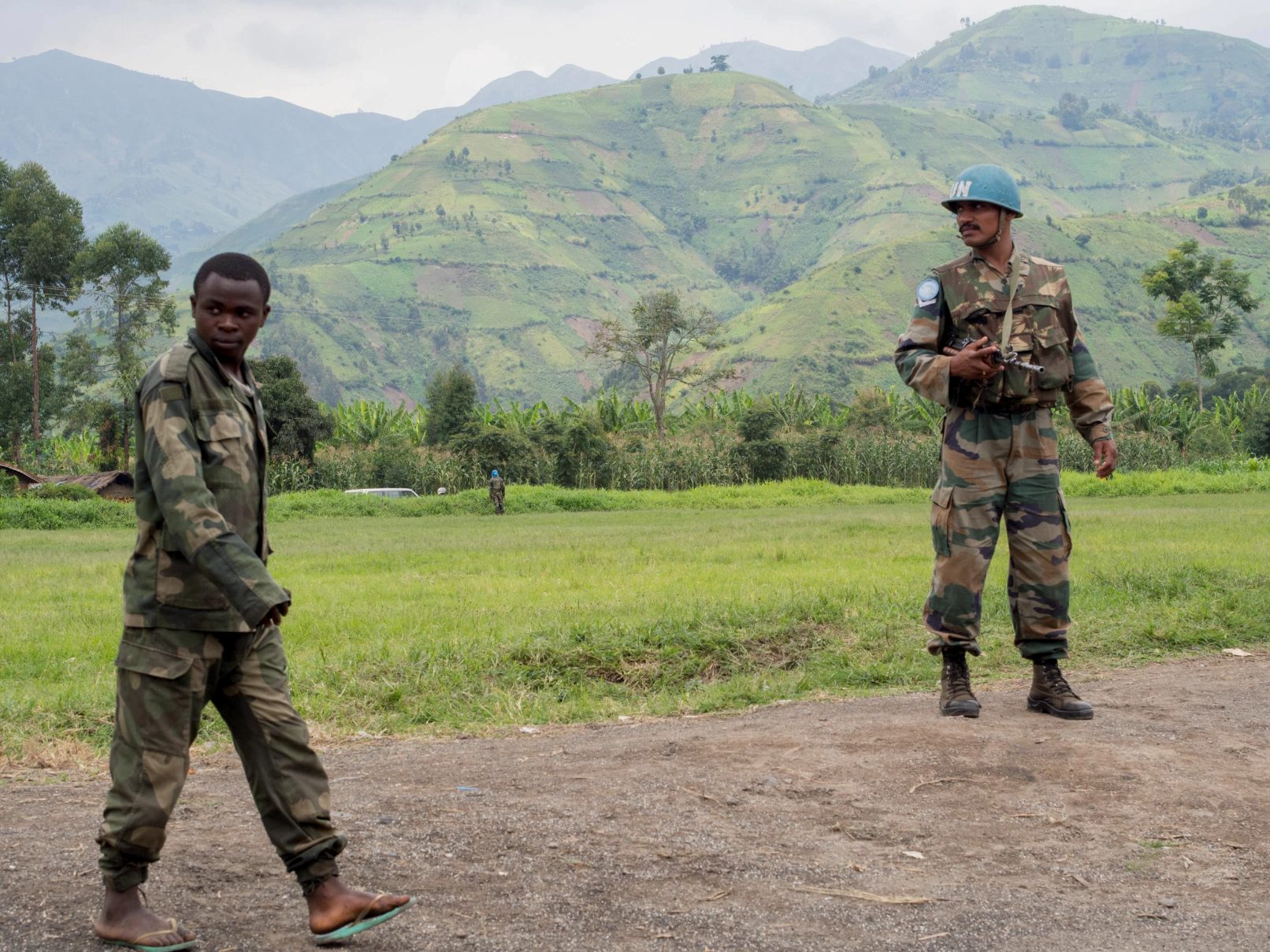
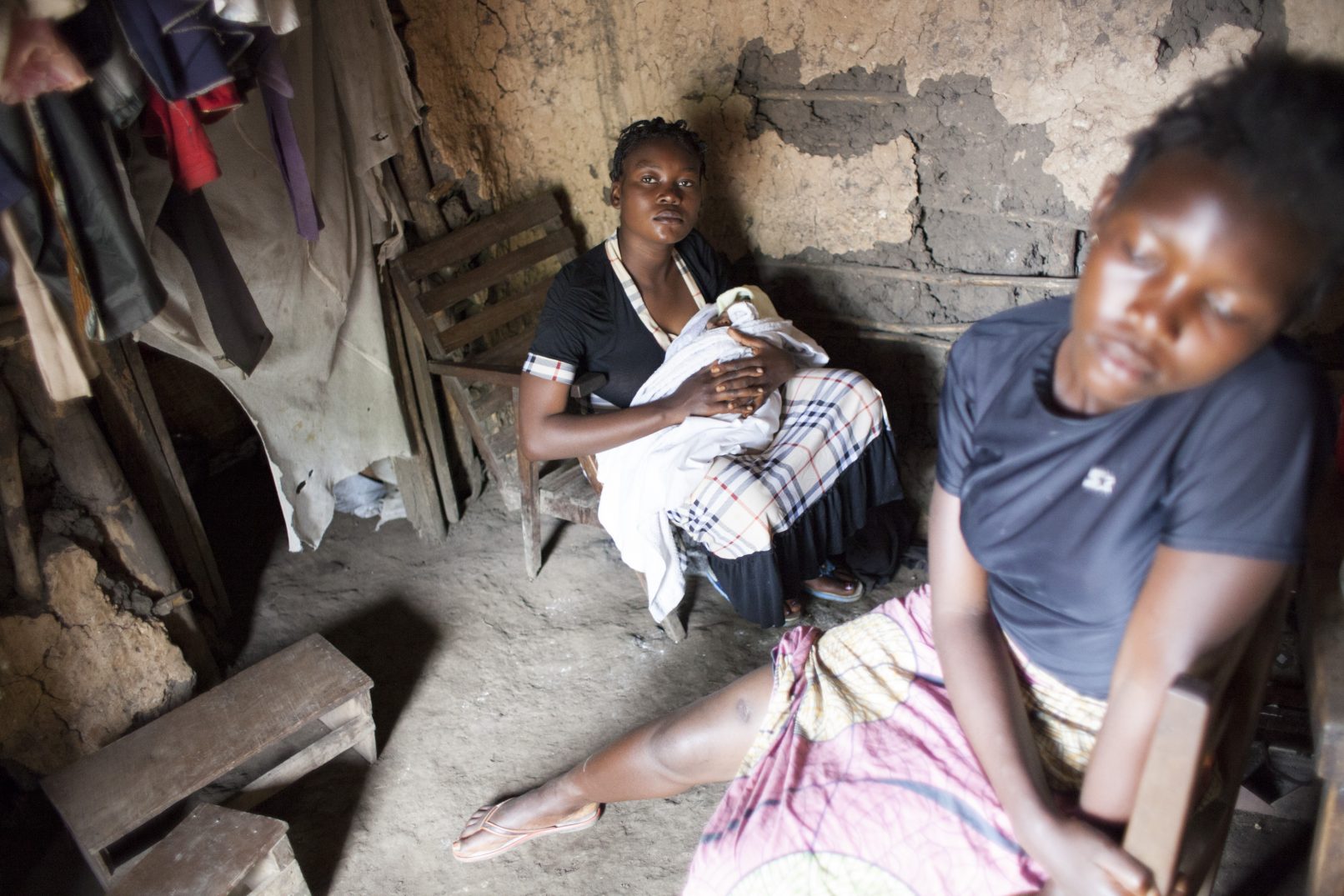
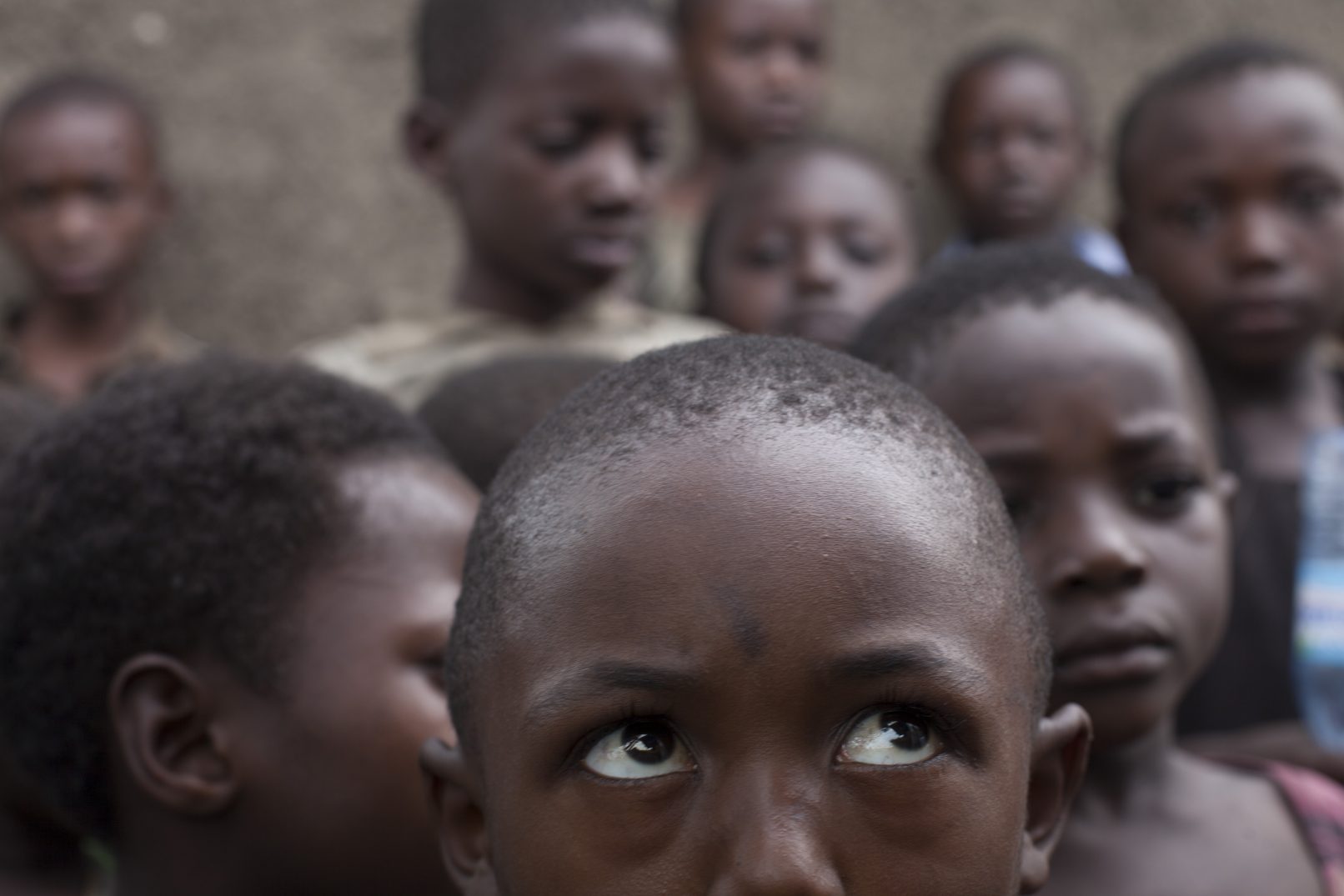
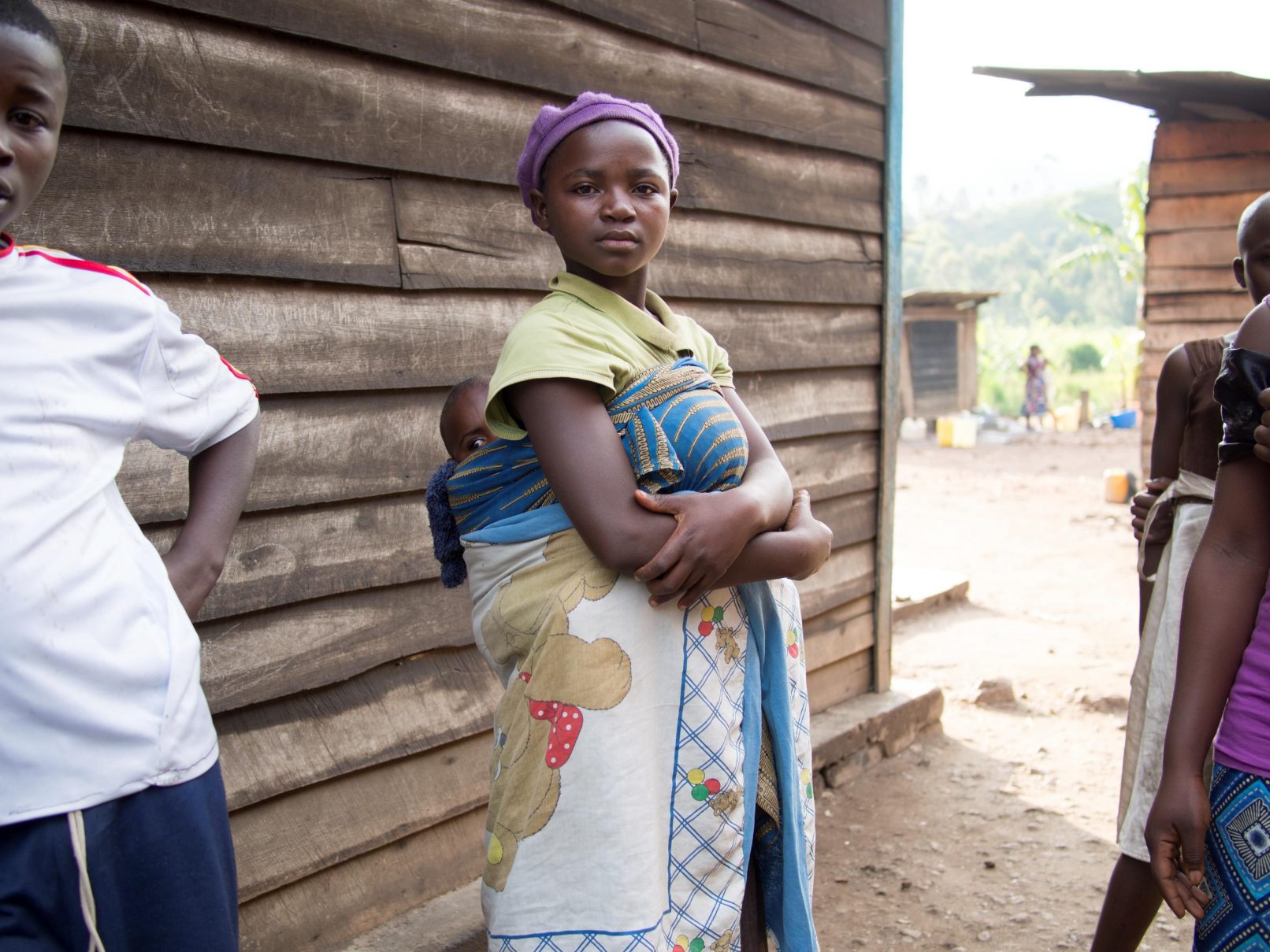
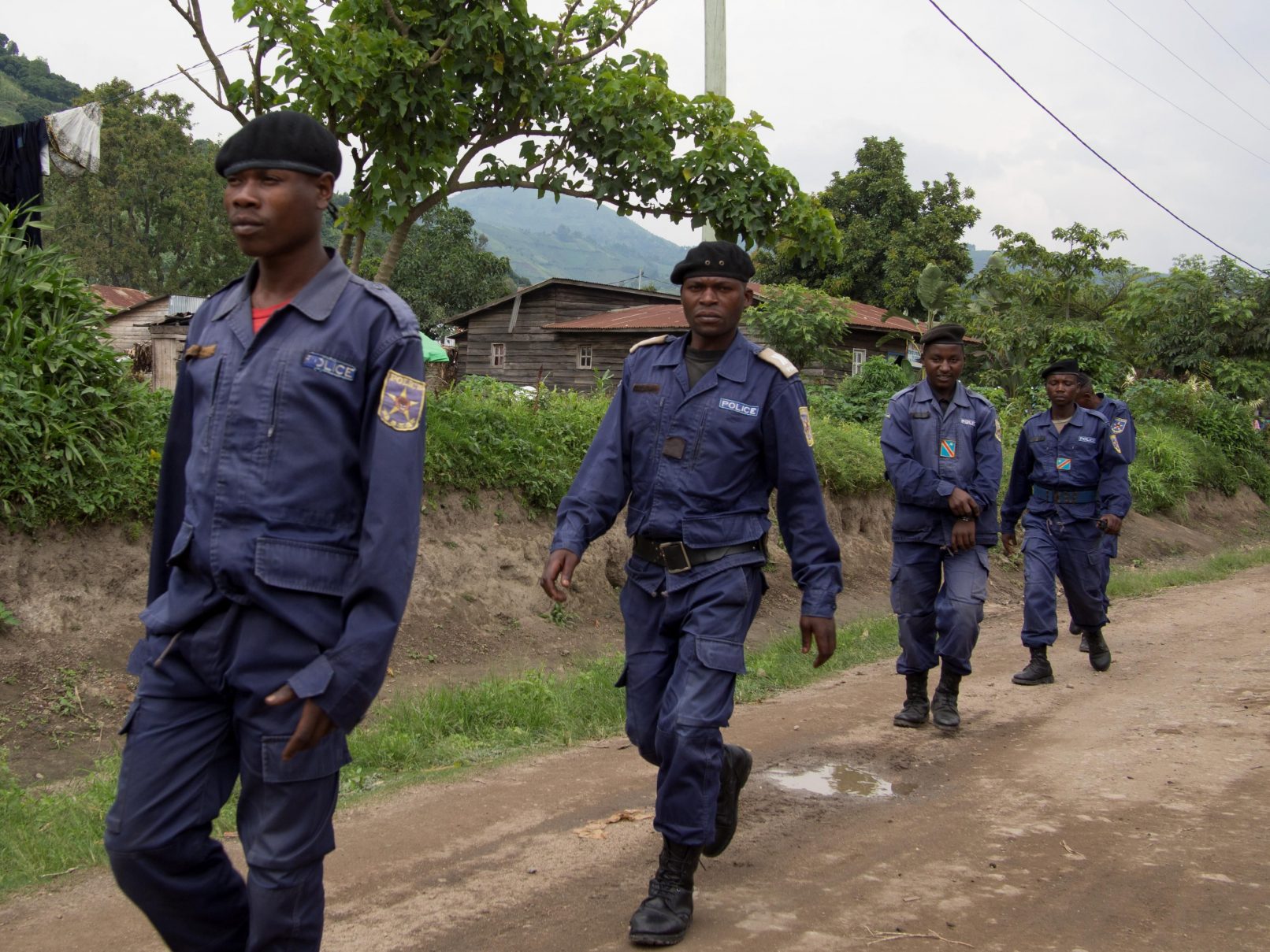
Army soldiers, armed militias and demobilised combatants living in the community in this small town in North Kivu. Their presence causes a great deal of problems for town residents as crop looting and sexual violence attacks occur almost every day.
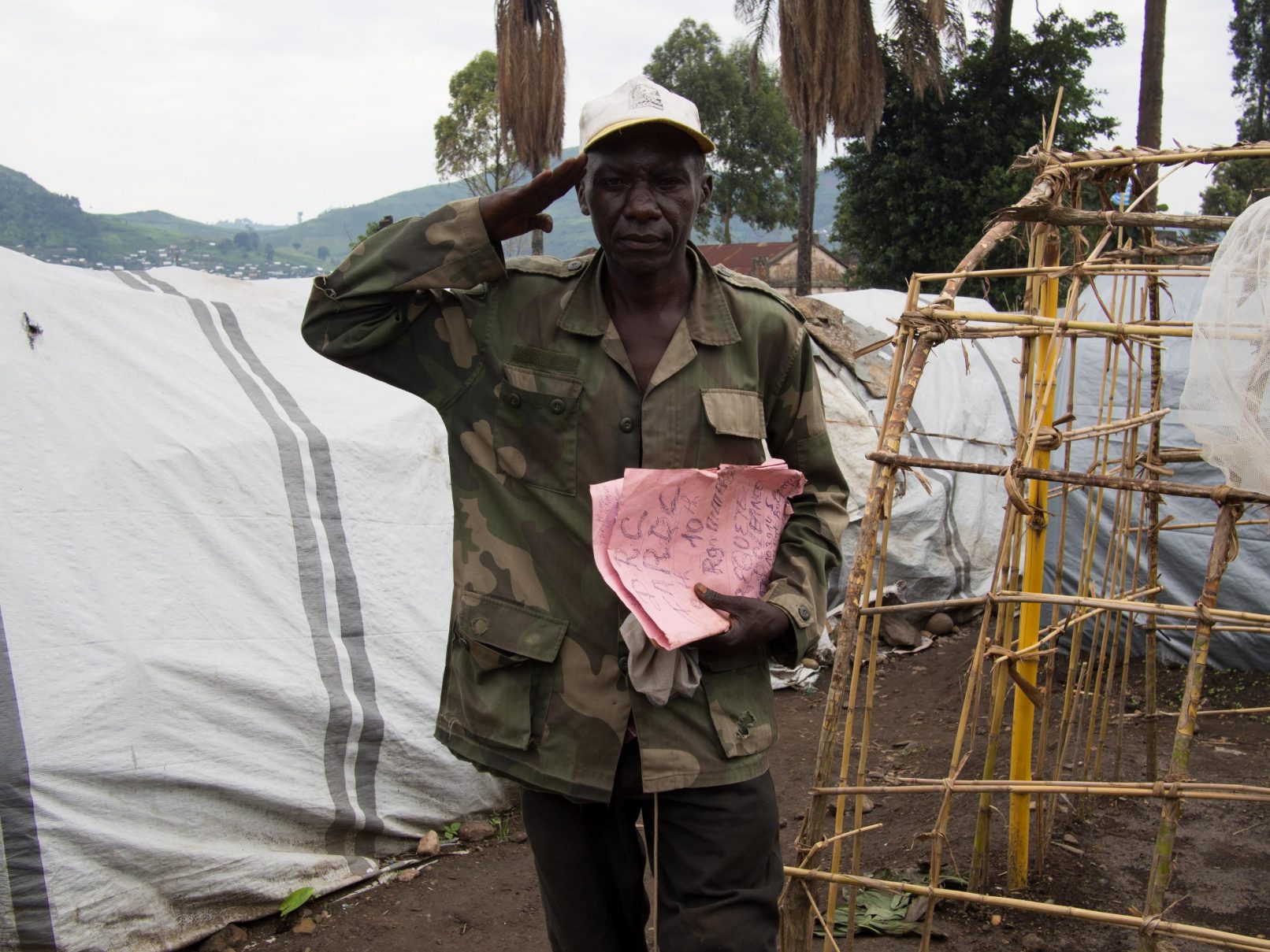
A retired army soldier in the IDP camp in the small town
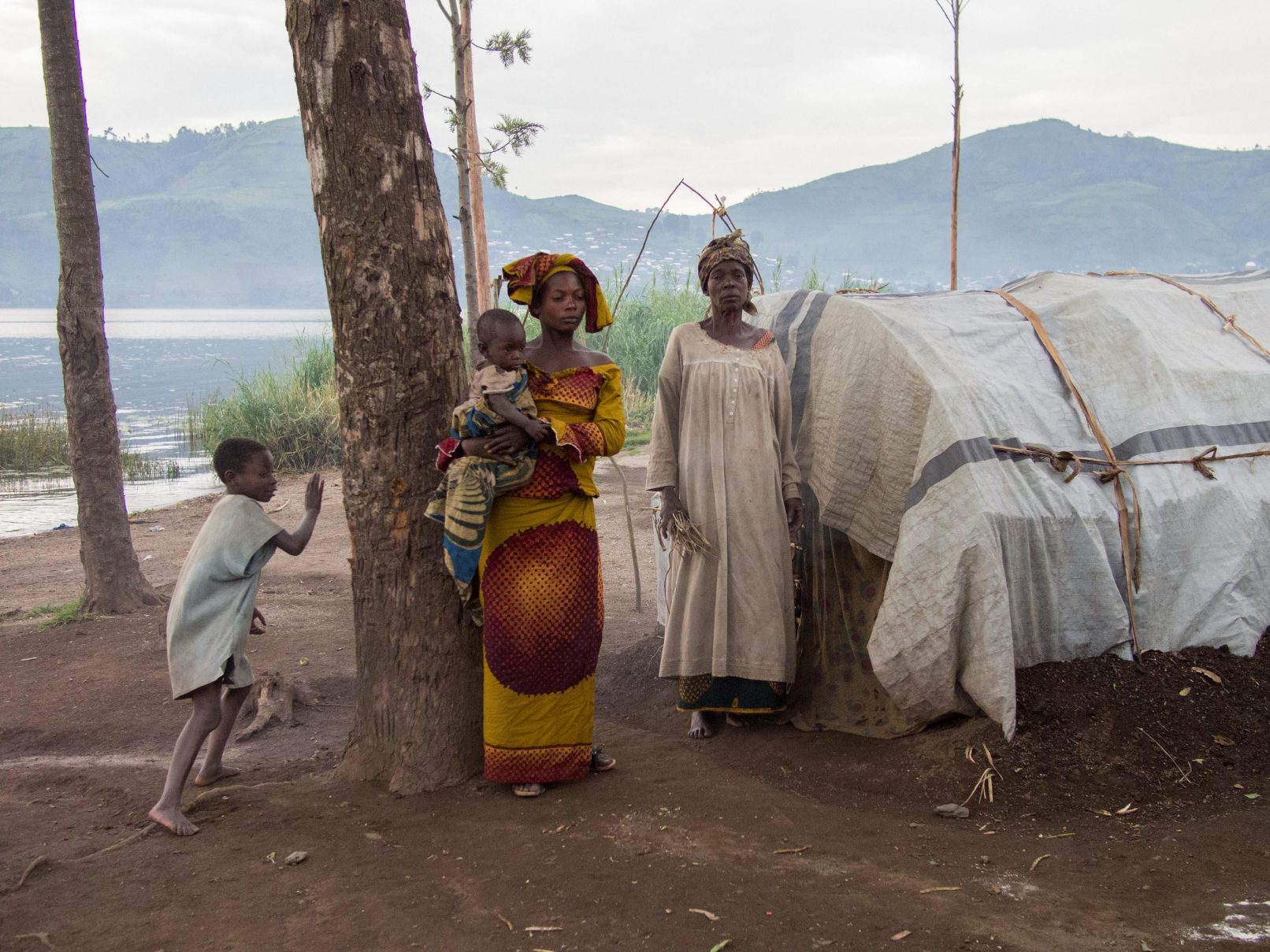
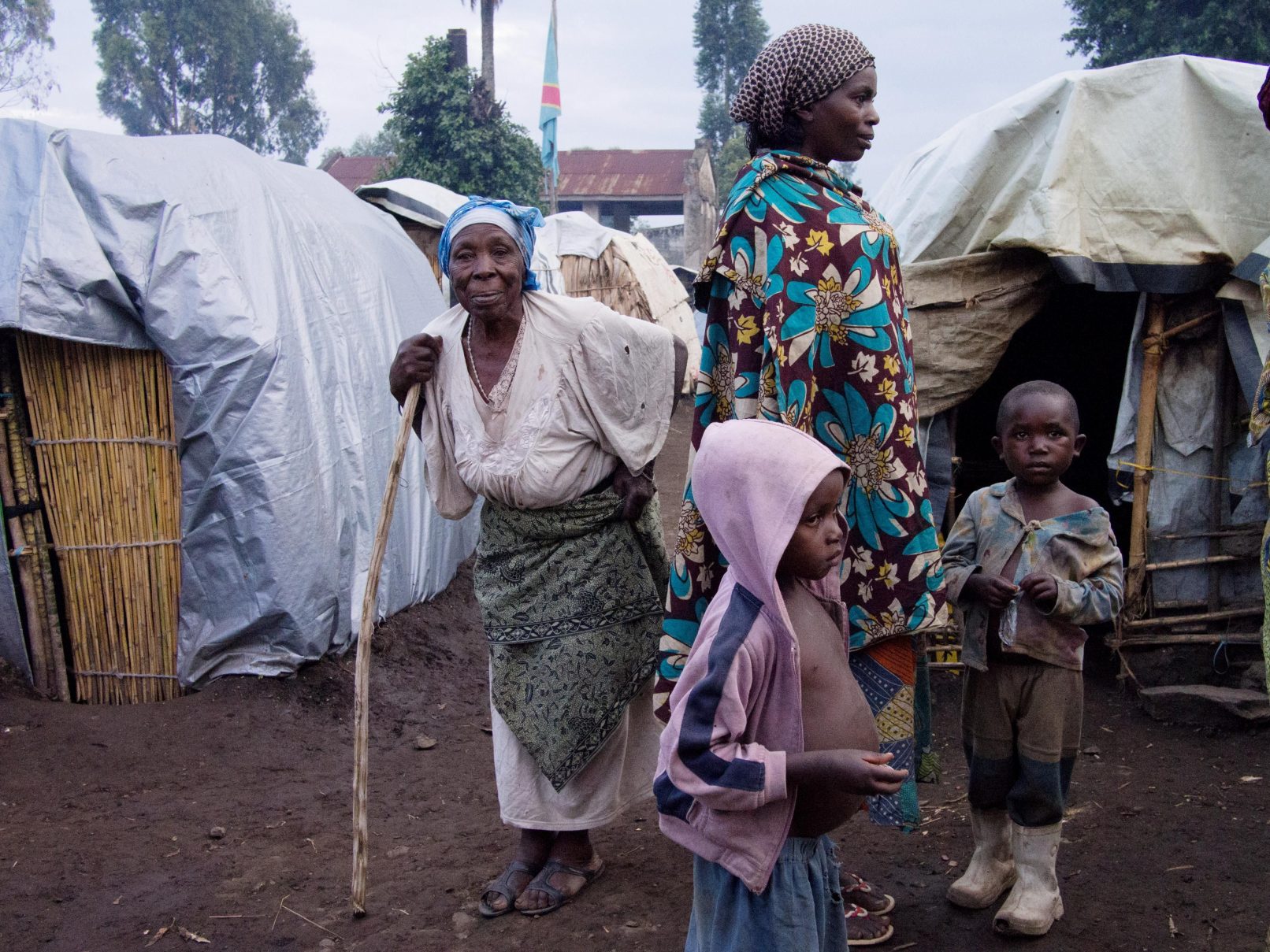
Grandmother Maria (left) is 90. She is an IDP, or internally displaced person, and lives in an informal IDP camp in Bweremena. She was forced from her own home in a village not far away as a result of the conflict in eastern DRC. As there is little formal humanitarian food relief provided in informal IDP camps, every day Maria visits her daughter-in-law Safari Kahindu who lives in a small wattle and daub house in the village. Safari struggles to feed her own young children but still tries to help feed her mother-in-law. Much of the humanitarian support given to IDPs in eastern Congo comes from local people and relatives who are themselves also affected by the conflict.
